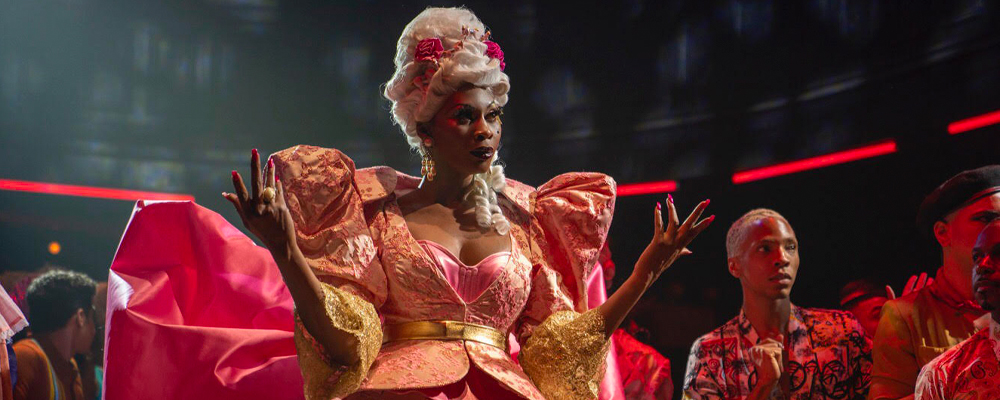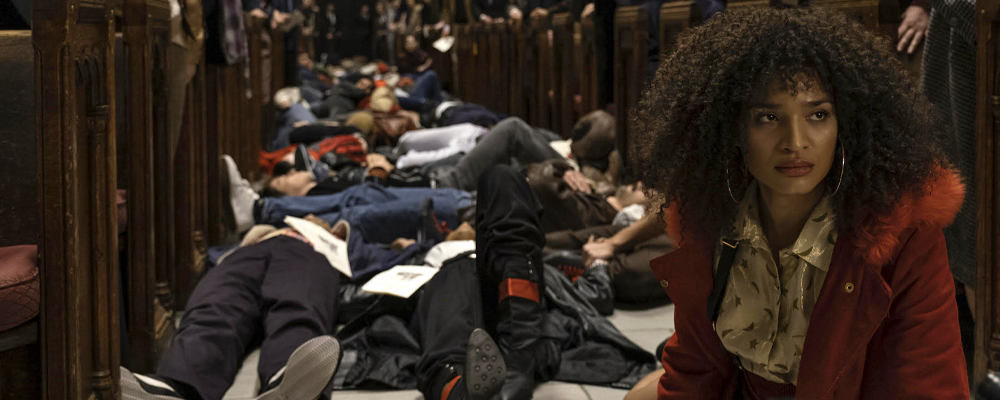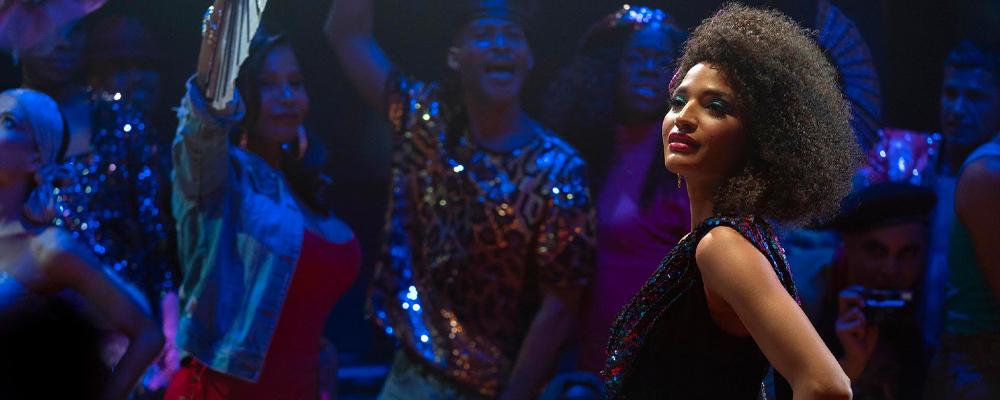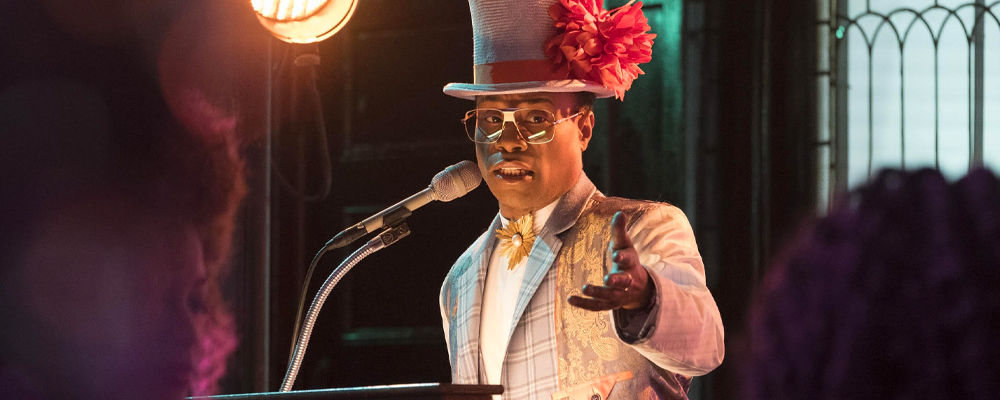‘Pose’ Season 2 Vogues Into the 90s With Style and Radical Spirit
Alci Rengifo
The personal starts to become political in the second season of Ryan Murphy’s extravagant series, “Pose.” Still brimming with high energy and dynamic performances, the narrative now shifts to the early 1990s when the AIDS crisis intensified, along with the rise in activism to defend afflicted communities. If the first season of this unique show set in the New York ballroom underground felt almost mythic, this new chapter has a fresh somberness and urgency, even as it still shines with much hope.
It’s 1990 and Madonna rules the airwaves with the hit “Vogue.” With pop music now openly influenced by the ballroom-house world, Blanca (Mj Rodriguez) feels this is the moment they’ve been waiting for to burst into the mainstream. Much of her hopes are on Angel (Indya Moore), star of the House of Evangelista on the catwalk. Blanca encourages Angel to join a prestigious modeling competition and forget about continuing to sell herself at the piers. Of course not everyone is so enthusiastic, with Pray Tell (Billy Porter) warning Blanca that just because a straight artist is appropriating a queer art form doesn’t mean that the revolution has arrived. But Blanca has more urgent things on her mind, like a devastating revelation that she can now be officially diagnosed as having AIDS. As the crisis spreads, the LGBTQ community forms activist cells to challenge public misinformation about the disease, protesting conservative politics and religious discrimination. This creates tension within House of Evangelista as Blanca and Pray Tell join public demonstrations but the ever so proud Elektra (Dominique Jackson) stays out, all the while buying fancy clothing and preferring to maintain her ballroom champ status.
The way season two of “Pose” opens is startling. Blanca and Pray Tell visit Hart Island, a spot where unclaimed corpses are buried. Attempting to pay final respects to Kurt, Pray Tell’s lover who died of AIDS, we learn that bodies of AIDS victims are quarantined from everyone else. By initiating the season in this fashion, away from the glitz and color of its central world, “Pose” reminds viewers of the context of its era. This is not an ordinary tale of aspiring artists seeking their moment in the spotlight, but of a community expressing itself amid a health crisis mixed with social segregation. The first season had dreams and star-crossed romance, and we can imagine this one will as well. But mixed with hope is also life’s unfairness. Blanca wants the best for her “children” in House of Evangelista, but now she has to move forward with an AIDS diagnosis. In another early scene nurse Judy Kubrak (Sandra Bernhard) delivers Blanca her diagnosis, but tells her about AZT and other, emerging forms of medication with the sober, encouraging attitude of a fighter. She describes how rich white queer men will donate the drugs after a loved one dies, to try and at least help others. Survival can become an archaic maze of seeking windows of opportunity and aid. Kubrak will later introduce Pray Tell to ACT UP meetings to raise public awareness. This story thread culminates in a rather powerful moment where most of House of Evangelista partakes in the historic peaceful protest “Stop the Church,” where activists silently lay down during mass to protest the church’s attack on condoms and promotion of abstinence.
Mixed with the political spirit of this season premiere is also a more personal angle involving Angel. She is becoming more of a key focus as she attempts to get one foot in the door of the modeling world. Her beauty is undeniable, to the point that when she goes to auditions the woman assessing candidates puts her in contact with a photographer. The road to stardom is full of many thorns and to Angel’s horror the photographer takes advantage and demands payment by forcing Angel to take explicit shots. But “Pose” is about solidarity in all ways and Blanca and Lil Papi (Angel Bismark Curiel) pay the scumbag a visit and literally bash his face in to get Angel’s negatives.
If you are wondering if “Pose” has lost touch with its ballroom glamor fear not, because this season opens with revolutionary fashion. Pray Tell oversees a competition based precisely on the French Revolution. Candy (Angelica Ross) bombs once more with a poorly-conceived peasant presentation while Elektra dominates with a Marie Antoinette-inspired number complete with a guillotine. Larger tensions seep in and Pray Tell uses the public event to openly chastise Elektra for not attending the Stop the Church protest. Eventually Elektra leaves House of Evangelista, moving in with rivals. Where she’s getting money and what her true motivations are we will have to keep watching to find out.
As “Pose” moves forward into the 1990s its characters continue to merit being rooted for. They embody a community insisting on the universal right to be themselves, to be human in an inhuman world. Maybe Blanca is hoping for too much, pinning too many hopes on a Madonna single, and that’s human too.
“Pose” season two premieres June 11 and airs Tuesdays at 10 p.m. ET on FX.




